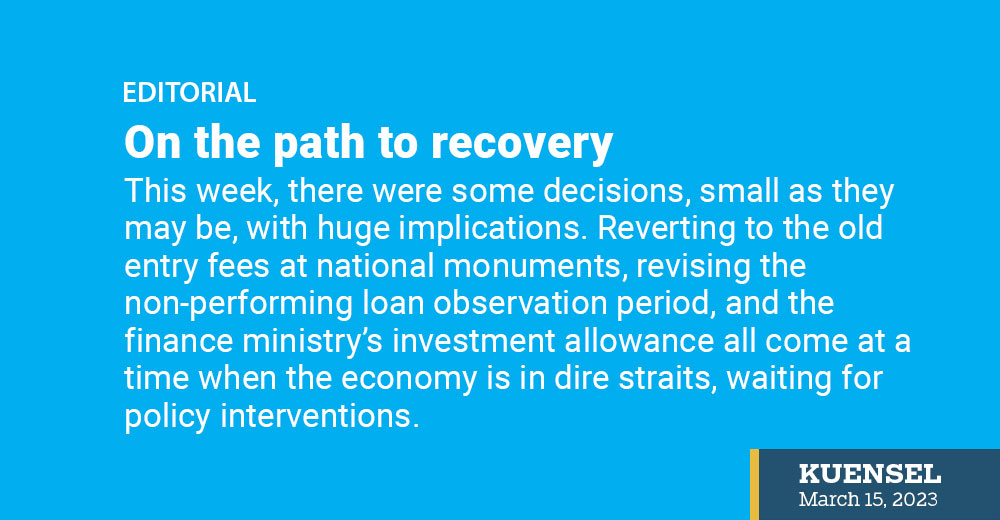This week, there were some decisions, small as they may be, with huge implications. Reverting to the old entry fees at national monuments, revising the non-performing loan observation period, and the finance ministry’s investment allowance all come at a time when the economy is in dire straits, waiting for policy interventions.
Many feel that the Covid-19 pandemic disrupted the economy. It did, but policy interventions after the pandemic, many believe led to the situation we are in today. The construction sector was affected by the NPL policy. With contractors suddenly seeing their access to finance gone, gave up work blaming the monetary policies. On the receiving end were the government and other agencies that contracted out projects before the pandemic disrupted normal lives.
Tourism came to a standstill. When it opened up, the policies affected the industry that had been a major source of convertible currency. Beyond helping the hard currency reserves, the local economy was severely hit. The nyendars (money offerings) from hundreds of tourists visiting the Phuentsholing Zangdopelri, for instance, was enough for the upkeep of the Lhakhang. Nu 1,000 per person was too much. The lhakhang ran out of visitors and funds even if nyendars was not the main source.
If our sacred religious monuments are to spread the values of Buddha Dharma, commercialising it – like visitors felt because of the fees – didn’t help. God’s space is open for all, at no cost. A minimal fee to maintain basic facilities is expected.
The private sector, especially the construction sector, relies on loans. While banks should ensure recovery, the umbrella rule of a six-month observation period denied many a good client access to finance. Doing away with the rule for NPL accounts closed or fully repaid is a good decision. It is straightforward. If the economy has to be active, we need funds. The construction sector drives the economy even with its shortcomings, denying it access to finance stalls growth.
Loans have to be monitored. At the same time, an umbrella rule like an embargo on borrowings without differentiating clients is not fair. Defaulters should be penalised, but it should not affect others. The revision in the observation period on loan accounts could help revitalise the economy. Banks should strengthen internal measures. Those who meet the requirements should not be denied access.
Policies should change with what ground realities show us. The private sector had been vocal in letting policymakers change rules. They know the ground reality and how government policies affect economic growth. They had been fighting on many fronts.
The finance ministry’s investment allowance, meanwhile, comes as a boon for companies. The allowance will encourage economic activity as it is directed towards investments or sectors that will lead to increased economic growth.
In the form of tax breaks, the government will grant allowance to investments made in projects to promote priority sectors. It is to motivate companies to invest in various ventures and ultimately benefit all the players in the economy.
The need of the hour after the pandemic and the government’s policy interventions is relaxing the rule and letting the economy get on the path of recovery. Supporting the private sector, revising rules, and creating an environment and opportunities for businesses to grow and contribute to the economy is a wise policy.
There are still many hurdles. It should improve as we learn from the realities of policies when put into practice.


